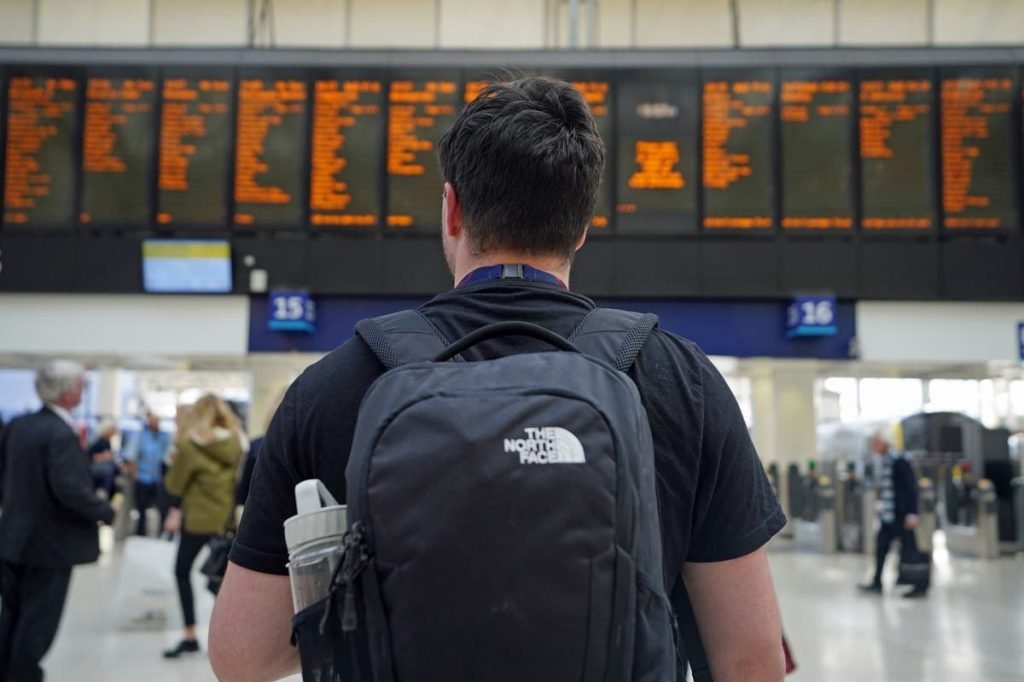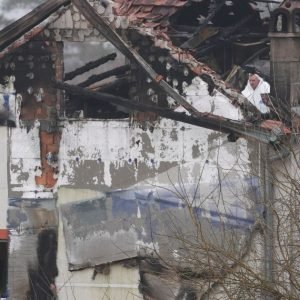
Trains across the UK are facing major delays this morning as a widespread disruption brings several lines to a halt.
National Rail has said the issue use due to a “nationwide fault” with the radio system used between train drivers and signal operators.
Passengers are advised that many journeys will be forced to begin later than planned for the duration of the day.
South Western Railway said in a message to passengers: “We have been informed of a national issue with communication systems affecting service this morning. This means that trains may be delayed before they start their journey.
“This is because it is preventing our train drivers from contacting the respective signalling centre this morning and a reset is having to be performed before the train can start its journey.”
What lines are affected?
According to National Rail, affected services include:
- Elizabeth line
- South Western Railway
- Gatwick Express
- Great Northern
- Southern
- Southeastern
- Thameslink
What’s gone wrong?
The fault lies with the Global System for Mobile Communications-Railway – or GSMR – which is used across the rail network for communications. Crucially, it is the tool that allows drivers and signal operators to communicate.
A spokesperson for Network Rail told The Independent: “We have discovered a fault with the railway’s radio communication system that is preventing it from automatically ‘logging on’.
“The back-up manual log-in system is being used instead causing a few minutes of delay at the start of the day. Once up and running the system is working normally and the impact for passengers is minimal.”
The digital radio system was installed across the network between 2007 and 2014 at a cost of £1.86bn. Network Rail says it was implemented to comply with European standards in rail communications and move the system away from outdated analogue models.
Unlike previous systems, it unlocked the ability for drivers and operators to remain in constant communication, even in tunnels or other deep cuttings. Network Rail says the new system also improves safety, performance and passenger experience.
However, the rail operator also acknowledges that there are improvements to be made to the system. Guidance to rail workers says: “The causes of delay incidents are often complex, involving a chain of causes and effects that are not solely technical”
“GSMR service levels can be impacted by a diverse range of factors such as, interference from the public mobile network operators, the effects of vegetation growth and new buildings built near the railway.”
When will things be back to normal?
National Rail says most of the affected trains should be able to run normally once they begin travelling. The short delays caused by issues with the radio system are having a knock-on effect, however, causing delays across the network.
Some providers are allowing customers to travel at alternate times or with different providers. More information can be found on each providers’ website.
An update from the National Rail says: “This issue is mainly affecting trains on some routes leaving the depot to start their service. However, trains can run normally once they are underway.
“Short-notice cancellations and alterations are expected due to the knock-on effect on the timetables. Please check before you travel, allow extra time for your journey and monitor live departure boards.”
For the latest updates on this story, follow The Independent’s live coverage





